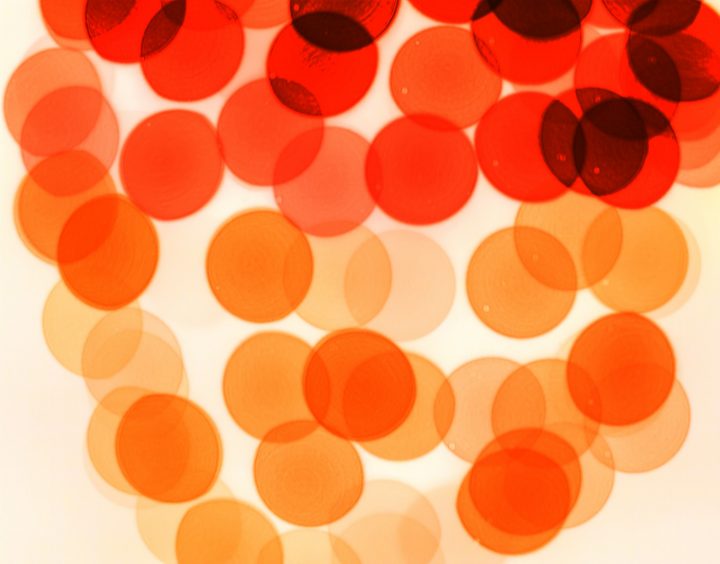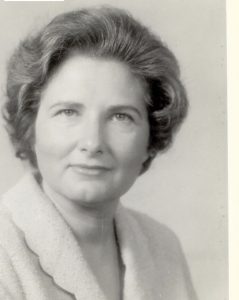Hematologist Carol Kasper Discusses the Challenges for Women with Hemophilia

Recently, I had the pleasure of speaking with Dr. Carol Kasper, a highly regarded hematologist who has dedicated her life’s work — over 40 years of research and patient care — to individuals with hemophilia.
Although Kasper retired three years ago, she continues to publicly discuss hemophilia and remains connected to the hemophilia community. In 2008, she was honored with a lifetime achievement award by the Hemostasis and Thrombosis Research Society. She also received two career achievement awards from the National Hemophilia Foundation.
I spoke with Kasper about some of the recurring issues women who carry a hemophilia mutation face.
‘How many carriers exist?’
Several years ago, World Federation of Hemophilia board member Mark Skinner asked Kasper, “How many carriers exist?” To find the answer, she went back to her clinic at Orthopaedic Hospital in Los Angeles and reviewed genetic files and family trees, looking for females connected to men with a known hemophilia diagnosis.
Her research found 277 potential female carriers for every 100 diagnosed males. These included the men’s aunts, mothers, sisters, and daughters. Further testing revealed that of these 277 potential carriers, approximately 156 true female carriers existed. Kasper reported her findings in a letter to the editor in the journal Haemophilia in 2010.
Testing women
Historically, the diagnosis and treatment of hemophilia has been focused on men. Kasper was among the first to promote the critical need for women to be tested. She believes that women biologically connected to men with hemophilia should have their factor levels tested, as well as genetic testing to ascertain carrier status.
“When analyzing the subset of women who are carriers of hemophilia, one can predict the average factor level will be about 50 percent,” Kasper said. “Half of the women will be above and half will be below this number.”
Many hemophilia organizations suggest that women with low factor levels should be diagnosed with hemophilia, just as men are. Where to draw the line diagnostically remains a debate. Diagnostic standards vary among organizations, with some categorizing “mild hemophilia” for women with factor levels under 50 percent. Others say levels should be under 30 or 40 percent. According to the World Federation of Hemophilia, any person, male or female, with levels under 40 percent should receive a hemophilia diagnosis.
In the women she tested, Kasper found that one in five carriers had factor levels below 30 percent, which falls in the range of a mild hemophilia diagnosis. In one family Kasper encountered, a father and his daughter both had mild hemophilia, and the daughter’s factor levels were lower than her father’s. This illustrates that women not only have hemophilia, but also that it can manifest more severely in women than in men in some families.
Kasper noted that the trend of giving women a proper hemophilia diagnosis is fairly new and may take time to gain momentum, yet this diagnosis is important to help women access treatment. She worries, though, that this change may take time and delay needed care.
Keeping carriers safe
Women who are carriers and their medical providers might not understand the bleeding risks associated with being a carrier, Kasper said. She noted that some women have had surgeries at rural hospitals that were ill-equipped to treat bleeding episodes caused by factor deficiency, and the women did not receive ideal care.
She said that men with hemophilia would understand the risks and often have surgery coordinated with a hemophilia treatment center (HTC). This would mean better safety for men with hemophilia while undergoing surgical procedures.
Women need similar safeguards with their care, Kasper said. For example, a rural hospital might be located 200 miles or more from a supplier who has factor concentrates to treat bleeding occurrences. And smaller hospitals do not keep factor stocked because of its cost and short expiration dates. In an emergency situation with excessive bleeding, this could create medical complications and risks for a carrier that a medical facility might not be able to address.
Ideally, women with mild hemophilia should be connected with an HTC for coordinated care. Carrier status should be noted in their medical history so that all medical personnel are aware if an issue arises. Furthermore, a medical alert tag is important for carriers with low factor levels, because paramedics will look for that if a woman is in an accident, Kasper said.
As a woman with mild hemophilia, I am grateful for Kasper’s advocacy work on behalf of women with hemophilia. She is a strong voice of support for women undergoing factor level and genetic testing. This is a critical component to women receiving appropriate diagnosis and care.
We are fortunate to have the opportunity to continue to hear her voice and learn from her years of experience in research and medical practice.
***
Note: Hemophilia News Today is strictly a news and information website about the disease. It does not provide medical advice, diagnosis, or treatment. This content is not intended to be a substitute for professional medical advice, diagnosis, or treatment. Always seek the advice of your physician or another qualified health provider with any questions you may have regarding a medical condition. Never disregard professional medical advice or delay in seeking it because of something you have read on this website. The opinions expressed in this column are not those of Hemophilia News Today or its parent company, Bionews Services, and are intended to spark discussion about issues pertaining to hemophilia.








Colette
It's such a relief to finally see female's haemophilia condition recognised and given the validity that should have happened decades ago. I have fought hard for doctors to acknowledge my haemophilia but have had terrible experiences over many years.